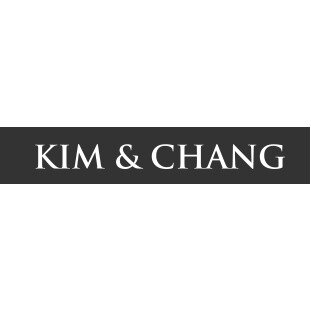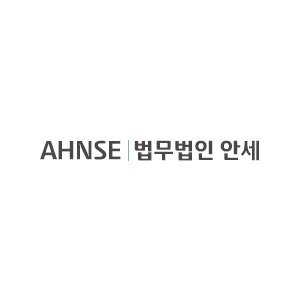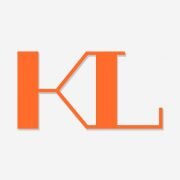Best Energy Regulatory Law Lawyers in South Korea
Share your needs with us, get contacted by law firms.
Free. Takes 2 min.
Or refine your search by selecting a city:
List of the best lawyers in South Korea
About Energy Regulatory Law in South Korea
Energy Regulatory Law in South Korea refers to the system of statutes, regulations, and policies that govern the production, distribution, consumption, and trading of energy within the country. This field primarily focuses on overseeing electricity, natural gas, renewable energy, and related infrastructure. The main purpose is to ensure a stable energy supply, promote fair competition, encourage investment in green energy, and safeguard consumer interests.
South Korea has been actively reforming its energy regulations in recent years to balance energy security, environmental protection, and economic growth. The legal framework includes laws such as the Electric Utility Act, Framework Act on Energy, and Renewable Energy Act. Regulatory oversight is mainly managed by government agencies like the Ministry of Trade, Industry and Energy (MOTIE) and the Korea Energy Agency.
Why You May Need a Lawyer
Energy Regulatory Law can be complex, especially due to ongoing amendments in policy to address climate change and energy efficiency goals. You may need a lawyer in situations such as:
- Starting a business involved in producing or supplying electricity, gas, or renewable energy
- Navigating permit and licensing requirements for energy projects
- Complying with environmental and safety regulations
- Handling disputes with regulatory authorities or other market participants
- Acquiring or developing renewable energy facilities
- Drafting, reviewing, or negotiating energy-related contracts
- Dealing with anti-competition or fair-trade issues in the energy sector
- Pursuing government incentives or subsidies for green energy projects
Legal assistance ensures compliance with local laws, mitigates risks, and protects your business interests.
Local Laws Overview
The following summarizes key aspects of Energy Regulatory Law in South Korea:
- Electric Utility Act - Regulates electricity generation, transmission, distribution, and retail. It covers licensing, tariffs, consumer protection, and the structure of Korea's electricity market.
- Framework Act on Energy - Outlines national energy policy, focusing on sustainable development, efficiency, and fostering innovation.
- Renewable Energy Act - Encourages the adoption and development of renewable energy sources. Provides for incentives, renewable energy certificate schemes, and mandatory supply obligations.
- Greenhouse Gas Emissions Trading Act - Implements South Korea’s cap-and-trade mechanism to reduce carbon emissions.
- Energy Efficiency Standards - Applies to products, buildings, and industrial processes to lower overall energy consumption.
- Government Oversight - The Ministry of Trade, Industry and Energy (MOTIE) and Korea Energy Agency play central roles in enforcement and implementation.
Projects in the energy space often require multiple permits and ongoing compliance reporting. Foreign investment is closely monitored and may be subject to additional requirements.
Frequently Asked Questions
What is the main regulatory body for energy in South Korea?
The Ministry of Trade, Industry and Energy (MOTIE) is the primary government body responsible for regulating the energy sector, supported by specialized agencies like the Korea Energy Agency.
Do I need a license to generate or sell electricity?
Yes, under the Electric Utility Act, operating a power generation business or selling electricity requires relevant licenses and permits from the authorities.
What laws apply to renewable energy projects?
The Framework Act on Energy and Renewable Energy Act establish the guidelines and obligations for renewable energy projects, including incentives and standards.
Are there incentives for investing in green energy?
Yes, the government offers subsidies, feed-in tariffs, and tax benefits to promote investments in solar, wind, and other renewable energy technologies.
How is the electricity market structured in South Korea?
South Korea’s electricity market is highly regulated, primarily structured around Korea Electric Power Corporation (KEPCO) and its subsidiaries, with ongoing reforms to encourage competition and efficiency.
What is the Renewable Portfolio Standard (RPS)?
The RPS requires electricity utilities to supply a certain percentage of their electricity from renewable sources, with compliance measures managed through renewable energy certificates.
Can foreign investors participate in South Korea’s energy industry?
Yes, but foreign investments are subject to review for national security and regulatory compliance. Additional approvals may be required depending on the type and scale of the project.
What are the main environmental compliance requirements?
Projects must comply with the Environmental Impact Assessment Act and various pollution control laws, focusing on minimizing emissions, protecting habitats, and addressing carbon reduction targets.
What happens in case of non-compliance?
Failure to comply with regulations may lead to fines, license suspension, closure of operations, or legal action by regulators and affected parties.
Where can I appeal regulatory decisions?
Decisions made by regulatory authorities can typically be appealed through administrative procedures or ultimately challenged in court, with legal representation advisable.
Additional Resources
Here are some key resources for individuals or businesses involved in energy law matters in South Korea:
- Ministry of Trade, Industry and Energy (MOTIE)
- Korea Energy Agency
- Korea Electric Power Corporation (KEPCO)
- Korea Power Exchange (KPX)
- Korea Energy Law Association
- Korea Renewable Energy Association
- Local law firms with an energy law team
- Legal clinics focusing on administrative or environmental law
Next Steps
If you believe you require legal assistance in the field of Energy Regulatory Law in South Korea, here is what you can do:
- Define your issue clearly and gather all related documents, permits, and correspondence
- Seek initial guidance from official bodies or local business chambers
- Contact a Korean law firm or energy law specialist familiar with local regulatory requirements
- Discuss your needs, possible solutions, and legal fees upfront
- Follow up on your case and remain compliant with any requirements or reporting
Consulting a qualified lawyer early in the process is the best way to avoid costly mistakes and ensure that your energy-related ventures proceed smoothly within the legal framework.
Lawzana helps you find the best lawyers and law firms in South Korea through a curated and pre-screened list of qualified legal professionals. Our platform offers rankings and detailed profiles of attorneys and law firms, allowing you to compare based on practice areas, including Energy Regulatory Law, experience, and client feedback.
Each profile includes a description of the firm's areas of practice, client reviews, team members and partners, year of establishment, spoken languages, office locations, contact information, social media presence, and any published articles or resources. Most firms on our platform speak English and are experienced in both local and international legal matters.
Get a quote from top-rated law firms in South Korea — quickly, securely, and without unnecessary hassle.
Disclaimer:
The information provided on this page is for general informational purposes only and does not constitute legal advice. While we strive to ensure the accuracy and relevance of the content, legal information may change over time, and interpretations of the law can vary. You should always consult with a qualified legal professional for advice specific to your situation.
We disclaim all liability for actions taken or not taken based on the content of this page. If you believe any information is incorrect or outdated, please contact us, and we will review and update it where appropriate.
Browse energy regulatory law law firms by city in South Korea
Refine your search by selecting a city.
















